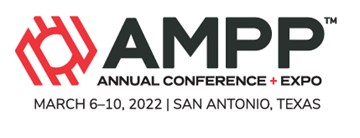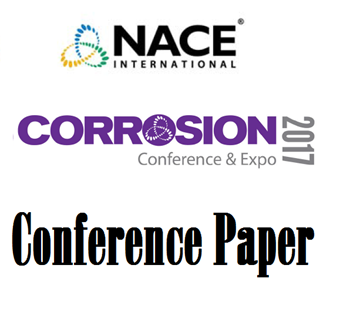Performance Of Additively Manufactured Alloy 718 In Sour Service
Also Purchased

Available for download
Product Number:
51319-13453-SG
Author:
Liu Cao
Publication Date:
2019
$20.00
We're sorry, something went wrong.
We are unable to complete this action. Please try again at a later time.
If this error continues to occur, please contact AMPP Customer Support for assistance.
Error Message:
Please login to use Standards Credits*
* AMPP Members receive Standards Credits in order to redeem eligible Standards and Reports in the Store
You are not a Member.
AMPP Members enjoy many benefits, including Standards Credits which can be used to redeem eligible Standards and Reports in the Store.
You can visit the Membership Page to learn about the benefits of membership.
You have previously purchased this item.
Go to Downloadable Products in your AMPP Store profile to find this item.
You do not have sufficient Standards Credits to claim this item.
Click on 'ADD TO CART' to purchase this item.
Please review your transaction.
Click on 'REDEEM' to use your Standards Credits to claim this item.
You have successfully redeemed:
Go to Downloadable Products in your AMPP Store Profile to find and download this item.

Available for download
Product Number:
51322-17938-SG
Author:
Wei Chen, Thomas Dobrowolski, Satya Ganti, Tim Haeberle, Aaron Avagliano, Anjani Achanta
Publication Date:
2022
$20.00
We're sorry, something went wrong.
We are unable to complete this action. Please try again at a later time.
If this error continues to occur, please contact AMPP Customer Support for assistance.
Error Message:
Please login to use Standards Credits*
* AMPP Members receive Standards Credits in order to redeem eligible Standards and Reports in the Store
You are not a Member.
AMPP Members enjoy many benefits, including Standards Credits which can be used to redeem eligible Standards and Reports in the Store.
You can visit the Membership Page to learn about the benefits of membership.
You have previously purchased this item.
Go to Downloadable Products in your AMPP Store profile to find this item.
You do not have sufficient Standards Credits to claim this item.
Click on 'ADD TO CART' to purchase this item.
Please review your transaction.
Click on 'REDEEM' to use your Standards Credits to claim this item.
You have successfully redeemed:
Go to Downloadable Products in your AMPP Store Profile to find and download this item.

Available for download
Product Number:
51317--9667-SG
ISBN:
9667 2017 CP
Author:
William Kovacs
Publication Date:
2017
$20.00
We're sorry, something went wrong.
We are unable to complete this action. Please try again at a later time.
If this error continues to occur, please contact AMPP Customer Support for assistance.
Error Message:
Please login to use Standards Credits*
* AMPP Members receive Standards Credits in order to redeem eligible Standards and Reports in the Store
You are not a Member.
AMPP Members enjoy many benefits, including Standards Credits which can be used to redeem eligible Standards and Reports in the Store.
You can visit the Membership Page to learn about the benefits of membership.
You have previously purchased this item.
Go to Downloadable Products in your AMPP Store profile to find this item.
You do not have sufficient Standards Credits to claim this item.
Click on 'ADD TO CART' to purchase this item.
Please review your transaction.
Click on 'REDEEM' to use your Standards Credits to claim this item.
You have successfully redeemed:
Go to Downloadable Products in your AMPP Store Profile to find and download this item.
We're sorry, something went wrong.
We are unable to complete this action. Please try again at a later time.
If this error continues to occur, please contact AMPP Customer Support for assistance.
Error Message:
Please login to use Standards Credits*
* AMPP Members receive Standards Credits in order to redeem eligible Standards and Reports in the Store
You are not a Member.
AMPP Members enjoy many benefits, including Standards Credits which can be used to redeem eligible Standards and Reports in the Store.
You can visit the Membership Page to learn about the benefits of membership.
You do not have sufficient Standards Credits to claim this item.
Click on 'ADD TO CART' to purchase this item.




